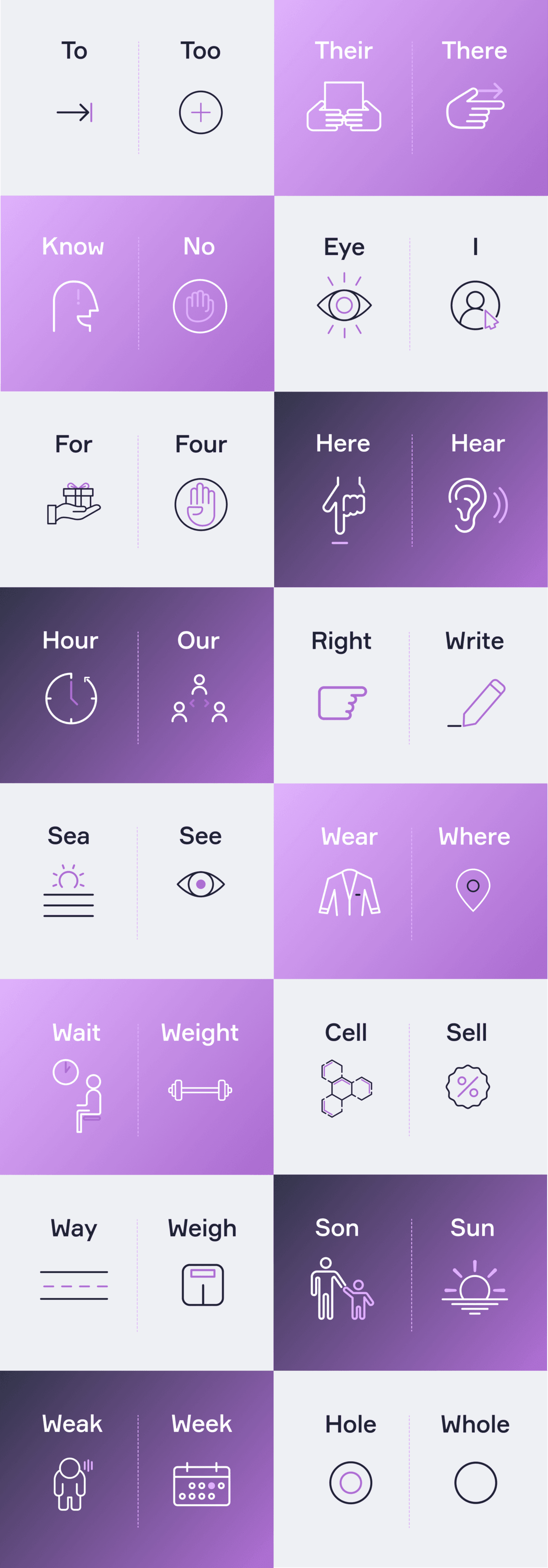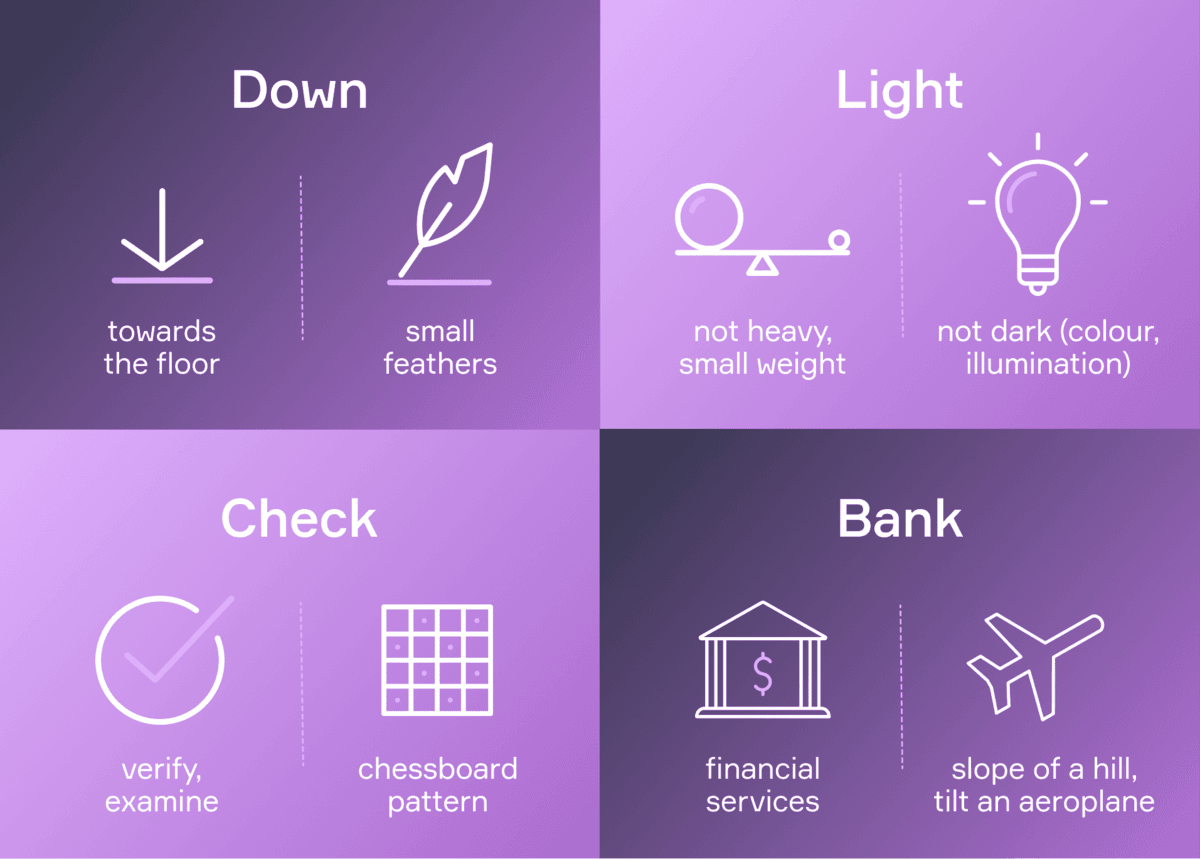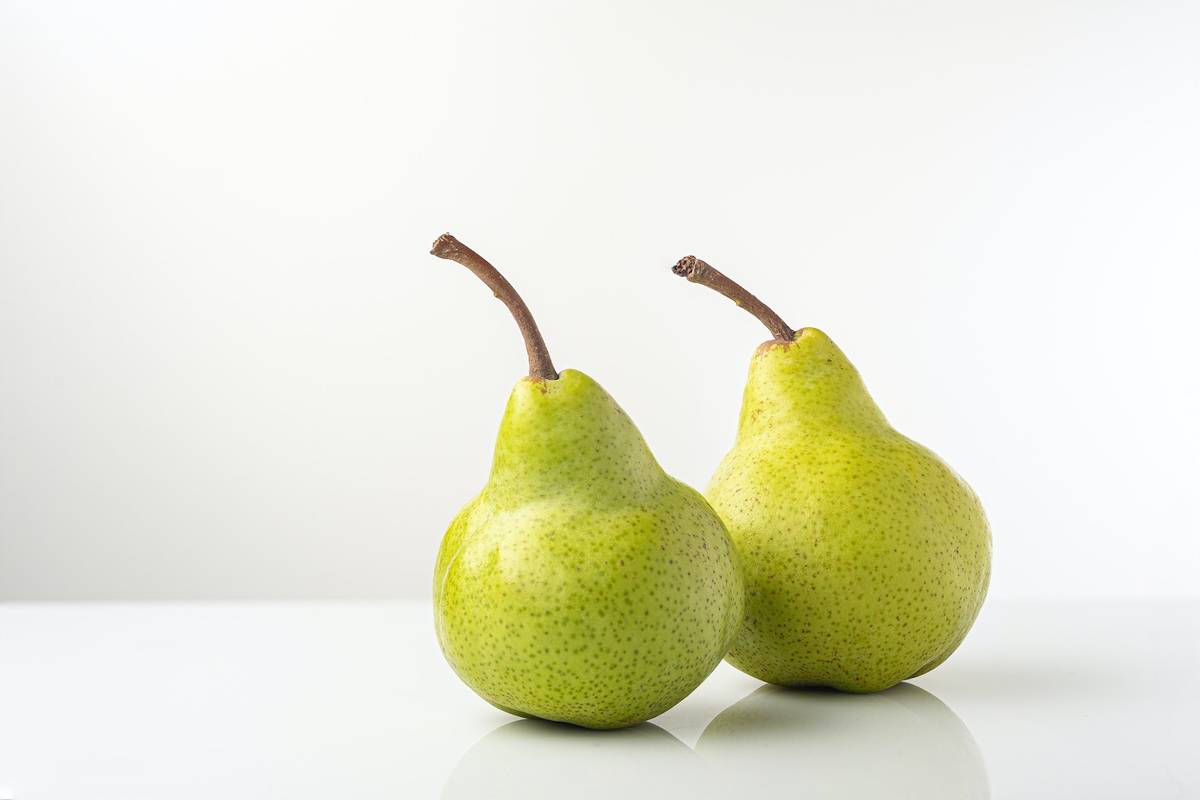English can be a chaotic language, even for native speakers.
The reasons for this are historical. Although classified as Germanic, English has inherited much of its lexicon from the Romance, Greek, and Celtic languages. More recently, it has been an extremely fast-changing language, due to its enormous number and the geographic and cultural diversity of speakers.
Unlike many other modern languages, there are no widely accepted authorities able to prescriptively influence the use of the English language in an organized way. Dictionary publishers must compete with English as a Foreign Language (EFL) schools, writers, poets, and academic institutions for influence.
This might go some way to explain why English has so many confusing words.
In part 1, we’ll focus on homophones, homographs, and true homonyms. These are pairs or even triplets of words that seem identical but mean different things.
If we apply these categories broadly, we’ll discover hundreds of words whose meanings differ only slightly. Generally speaking, this results from a closely shared etymology. Although the differences can be tough to memorize, they are not really confusing on a deeper level.
Instead, we’ll direct most of our attention to the word pairs that differ significantly in meaning, often because they entered the English language from totally different sources and became similar later.
Learning the homophone, homograph, and true homonym pairs that appear most often in English can help you avoid confusing moments as you approach a highly advanced level.
Homophones are words that sound the same but have a different meaning.
Here are the 20 homophone pairs that appear most often in English:

Some slightly less common homophones
| peace | piece |
| meat | meet |
| knot | not |
| oar | or |
| sight | site |
| sew | so |
| one | won |
| shore | sure |
| poor | pour |
| him | hymn |
| steal | steel |
| seam | seem |
| root | route |
| knight | night |
| male | |
| real | reel |
| stair | stare |
| die | dye |
| plain | plane |
| principal | principle |
| morning | mourning |
| coarse | course |
| brake | break |
| air | heir |
| hair | hare |
| suite | sweet |
| none | nun |
| tail | tale |
| bare | bear |
| sole | soul |
| fair | fare |
| flour | flower |
| profit | prophet |
| pair | pear |
| dear | deer |
| pray | prey |
| sail | sale |
| waist | waste |
| dam | damn |
| heal | heel |
| cent | scent |
| toe | tow |
| aisle | isle |
| ante- | anti- |
| cereal | serial |
| complement | compliment |
| fir | fur |
| idle | idol |
| made | maid |
| stationary | stationery |
Homographs are words that are spelled the same but have different meanings.
In many cases, these different meanings still stem from the same etymological root. Sometimes a different pronunciation is used to indicate that the word is a verb, noun, or adjective, while otherwise expressing a similar idea. It might even indicate the tense of a verb, like read (past tense) and read (present tense).
But other homographs have emerged more coincidentally, and have totally unrelated meanings.
Here are the 20 homographs that appear most often in English:
| Spelling | Pronunciation | Meaning |
|---|---|---|
| live | livlaiv | (v) To have life(a) Connected to electricity, or performed to an audience |
| number | ˈnuhm.buhˈnuhm.uh | (n) A quantity, a representation of counting(a) More deprived of sensation |
| minute | ˈminitmaiˈnyoot | (n) 60 seconds, or 1/60th of an hour(a) Very small |
| lead | leedlehd | (v) To go in front or guide(n) The metallic element with the symbol Pb |
| project | ˈprojehktpruhˈjehkt | (n) A plan, scheme, or proposal(v) To propel something forward |
| close | klohsklohz | (a, n) Nearby(v, n) To shut, block, or stop being open |
| subject | ˈsuhbjiktsuhbˈjehkt | (n) A matter or topic that is being considered(v) To cause to undergo a process or experience |
| present | ˈprehzntpriˈzehnt | (n, a) A gift, or able to be found at the place or occasion in question.(v) To introduce or offer something |
| evening | ˈeevningˈi vuhning | (n) The time of day from late afternoon to early night(v) To make smooth, flat, or balanced |
| content | ˈkontehntkuhnˈtehnt | (n) The subject matter, ideas, or items contained in something(a, v) Satisfied, peaceful |
| wind | windwaind | (n, v) The movement of air across a planet’s surface, or to deprive something of air(v) To wrap or coil |
| object | ˈobjiktuhbˈjehkt | (n) A material thing, or that to which actions are directed(v) To express disapproval |
| conduct | ˈkonduhktkuhnˈduhkt | (n) Behavior(v) To direct, manage, or transmit |
| appropriate | uhˈprohpriituhˈprohprieit | (a) Suitable(v) To take something for one’s own |
| tear | teuhtiuh | (v, n) To pull or rip something apart by force, or the result of that action(n) Liquid secreted by the eyes |
| separate | ˈsehpritˈsehpuhreit | (a) Distinct, different, unrelated, or unattached(v) To take or keep apart |
| row | rohrow | (n, v) A number of things arranged in a line, or to move a boat through water using oars(n) A loud argument |
| desert | ˈdehzuhtdiˈzurt | (v) To abandon or cease supporting(n) A barren landscape without much rain |
| wound | woondwownd | (n, v) An injury to living tissue caused externally, or to cause that injury(pp) Wrapped, coiled, tightened, or progressed on a path with many twists and turns. To have “wound up” is to have resulted in; to have “wound down” is to have relaxed or slowed down. |
| entrance | ˈehntruhnsinˈtraans | (n) A way in, or the act of coming in(v) To capture someone’s attention or mildly hypnotize them |
Some slightly less common homographs:
| axes | dove | sewer |
| bases | incense | shower |
| bass | invalid | sow |
| bow | moped | tarry |
| buffet | polish | tier |
| console | resume | unionized |
| does | sake | wicked |
True homonyms are words that are both homophones and homographs
The vast majority of true homonyms have a close etymological relationship, which tends to result in meanings that are not completely distinct.
However, there are some examples in English where two totally different words have emerged, for example, one of Germanic and the other of Latin origin. In other cases, an English word has only one discernable pre-English origin but diverged later into a very different set of meanings within the English language.
Here are the 20 etymologically distinct true homonyms that appear most often in English:
| Homonym | First meaning | Second meaning |
|---|---|---|
| can | (v) To be able to | (n, v) A hollow metal cylinder, or the act of filling and sealing one |
| just | (av) Recently, barely, exactly | (a) Fair, right, exact |
| well | (av, a, e) Good, thorough, with reason, healthy | (n, v) A structure that brings things to the surface from underground. To develop, to reach the surface, to spill. |
| right | (a, n, av, v) Good, correct, absolute, immediate, or an entitlement, or to restore something to a correct state | (a, av, n) Of or in the direction of east relative to north; west relative to south, etc. |
| down | (av, p, a, v, n) Toward a lower position; to bring something to the ground, or a time or place of lowness | (n) The soft, first layer of hair or feathers that grow on a bird, baby, or fruit. Also a gently rolling hill. |
| may | (v) Modal verb used to qualify other verbs with possibility, permission, hope | (n) The fifth month of the year in the Gregorian system used by most of the world. Also a name for the shrubs and trees of the genus Crataegus, associated with that month. |
| mean | (v) Intend, signify, result in | (a, n) Ungenerous, inferior, or excellent, or a mathematical average found by dividing the count of numbers in a collection by the sum of numbers |
| case | (n, v) A protective container, or to enclose in a material | (n) An instance or example, or a set of facts or arguments supporting a position in a debate or legal situation, or a way of categorizing words |
| kind | (n) Type, essence, category | (a) Friendly, generous, considerate |
| watch | (v, n) To view attentively for a period of time, to be careful. Or the situation, time, or group of people viewing and/or being careful. | (n) A small device used to tell the time, usually worn on the wrist |
| set | (v, n, a) To put, place, or fix into a specified position or condition; the fixed position or condition itself; or to be fixed, arranged or ready | (n) A group of things that belong together |
| base | (n, v) The bottom, supporting or foundational part; a headquarters; a chemical that can neutralize acid; a category of number systems; or to create one of the above | (a) Impure, low in value, or immoral |
| fine | (a, n, av, v) Of good quality, thin, delicate, or acceptable | (n, v) Money paid as punishment, or the imposition of that punishment |
| light | (n, v, a) The form of energy perceived by the eye; to release that energy; having or being immersed in that energy | (a) Low in weight, density, mass, or quantity |
| former | (a) Belonging to an earlier time, or mentioned previously | (n) A tool or device used to shape, strengthen, or frame other materials |
| arms | (n) The upper limbs of the body. Smaller divisions of a larger group. | (n, v) Pieces of equipment used in combat, or to provide, prepare or equip such items. Also, the symbols of a family or organization. |
| check | (v, n) To examine, inspect, stop or slow. Or, the moment or situation of examination or stopping, the bill in a restaurant, or an expression of agreement. | (a, n) Having a pattern or other characteristics similar to a chessboard. Or the pattern itself, or a material with the pattern. |
| bank | (n, v) A place or box for storing money, a financial services organisation, or to store money | (n, v) The side of a hill, the ground beside a river, to form a slope, or to tilt an aircraft |
| lie | (v, n) To be in or get into a horizontal or resting position. To be situated, or to remain in a certain state. Or, the relative position of objects or territory. | (n, v) An intentionally false statement, or to make such a statement |
| board | (n, v) A long, flat strip of wood. The group of people responsible for managing an organization. Or, to cover up with pieces of wood. | (v, n) To get on or into a ship, aircraft, or large motorized land vehicle; to receive accommodation or meals during a period of time. The aggregated meals of the day provided by a third party. |

Some slightly less common true homonyms:
| last | fast | fair |
| letter | fly | file |
| left | hide | scale |
| box | key | sick |
| club | spring | wave |
| rock | yard | mine |
| trip | firm | pound |
Of course, there are many more homophones, homographs, and homonyms in the English language, but hopefully this article has given you an overview of the most common ones and some tools to avoid getting tripped up when you encounter them.
In the next article in this series, we’ll look at some English word pairs that are commonly confused or misused even though they’re not homophones or homographs.


